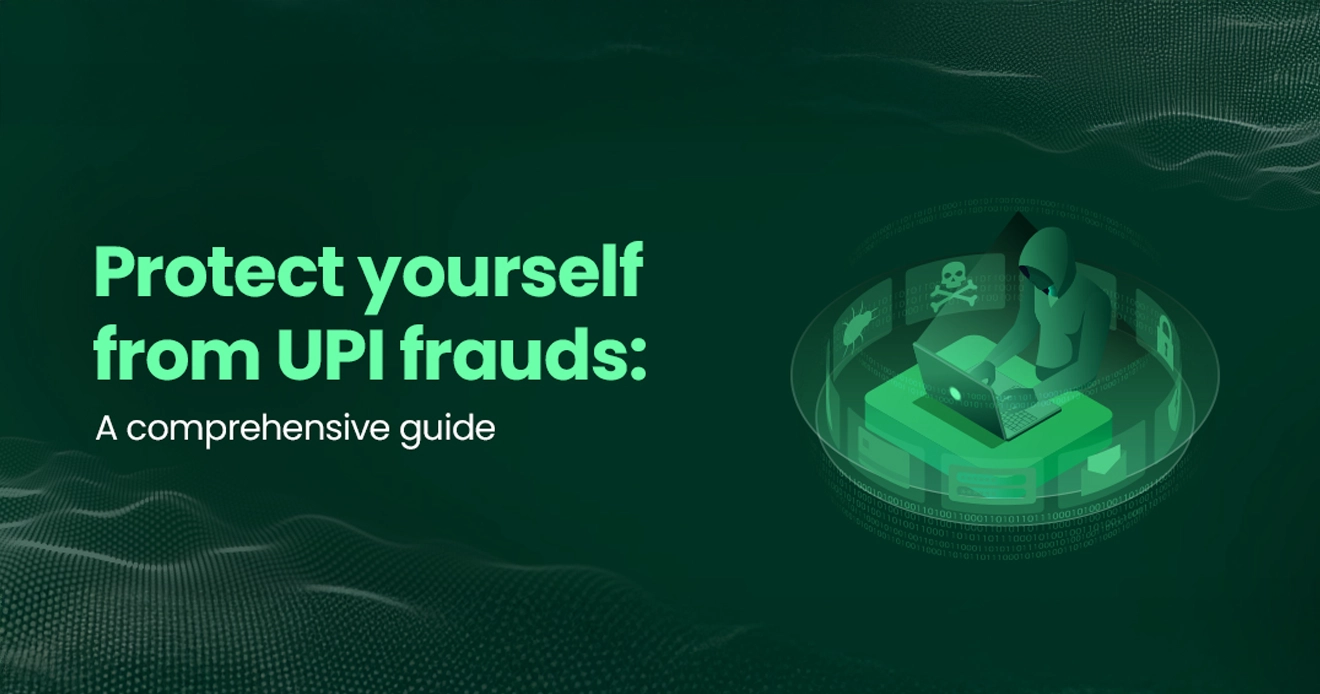Unified Payments Interface has changed the way we conduct financial transactions in India. This seamless and efficient payment system has become a preferred choice for millions of users. However, with the increasing popularity of UPI, there has also been a rise in fraudulent activities. Understanding UPI fraud and how to protect yourself from these scams is crucial.
This blog will explore common UPI scams, explain what UPI fraud is and provide practical prevention tips.
What is UPI fraud?
UPI fraud involves deceitful practices where fraudsters exploit the UPI system to steal money or sensitive information from users. These frauds often occur through various techniques, including phishing, impersonation and social engineering. Understanding what UPI fraud entails can help you recognise potential threats and take necessary precautions.
Common UPI payment scams
Several types of UPI fraud are prevalent today. Below are some of the most common scams:
- Phishing scams
- Fake UPI payment requests
- Remote access scams
- QR code scams
- SIM swap frauds
Phishing is a technique used by fraudsters to trick users into sharing their sensitive data, such as UPI PINs, OTPs or bank account details. These scams often involve fake emails, messages or websites that mimic legitimate services. Users may receive messages claiming to be from their bank or a payment service, urging them to click on a link or share their UPI credentials.
In this scam, fraudsters send fake UPI payment requests, often posing as sellers or service providers. The request may appear genuine, and unsuspecting users might authorise the payment, unknowingly transferring money to the scammer’s account. This type of fraud is particularly common in online marketplaces and social media transactions.
Remote access scams involve fraudsters convincing users to download remote access apps, such as AnyDesk or TeamViewer, under the pretext of resolving a technical issue or offering customer support. Once the app is installed, the scammer gains control of the victim’s device and can access sensitive information, including UPI credentials, to carry out fraudulent transactions.
QR code scams are another form of UPI fraud where fraudsters send a QR code to the victim and ask them to scan it to receive money. Instead of receiving money, the victim unknowingly authorises a payment to the scammer. This scam often targets individuals unfamiliar with the functioning of QR codes in UPI transactions.
SIM swap fraud is a UPI scam where fraudsters obtain a duplicate SIM card of the victim’s phone number. With the duplicate SIM, they can intercept OTPs and authorise UPI transactions from the victim’s bank account. This scam often goes undetected until a significant financial loss occurs.
Prevention tips for avoiding UPI frauds
Understanding UPI fraud is the first step towards protecting yourself. Here are some suggestions to avoid falling victim to UPI payment scams:
- Stay vigilant: Always verify the source before responding to any UPI payment requests, messages or calls. Be cautious, especially with unsolicited communications
- Guard sensitive information: Never share your UPI PIN, OTP or bank details with anyone, even if the request appears legitimate.
- Be cautious with QR codes: Only scan QR codes from trusted sources. Double-check with the sender to confirm the purpose of the QR code.
- Download apps wisely: Install apps only from the official app stores like Google Play or Apple App Store. Avoid downloading remote access apps unless absolutely necessary.
- Monitor transactions regularly: Regularly review your bank statements and UPI transaction history to detect any suspicious or unauthorised activity.
- Secure your mobile number: Be cautious about sharing your mobile number, especially on unfamiliar websites or with unknown individuals.
What to do if you become a victim of UPI fraud?
Despite taking precautions, if you fall victim to UPI fraud, immediate action is necessary to minimise the damage. Here’s what you should do:
- Contact your bank immediately: Inform your bank about the fraudulent transaction. Then, request them to block your UPI account or freeze your bank account temporarily.
- File a complaint: You should lodge a complaint with the cybercrime cell in your area or use the National Cyber Crime Reporting Portal to report the fraud.
- Change your UPI PIN: As soon as you suspect fraud, change your UPI PIN to prevent further unauthorised transactions.
- Monitor your account: Regularly monitor your bank statements and UPI transaction history to spot any unauthorised activity
Safeguard your money from UPI fraud
While UPI has undoubtedly made financial transactions more convenient and efficient, it has also opened the door to new types of fraud. Staying informed about common scams and taking proactive steps to protect your personal information are essential in safeguarding your finances. By remaining vigilant, verifying payment requests and securing your devices, you can decrease the risk of falling victim to UPI fraud.
The key to prevention is awareness and prompt action. Should you ever suspect fraud, acting swiftly can help minimise the impact and protect your hard-earned money.

